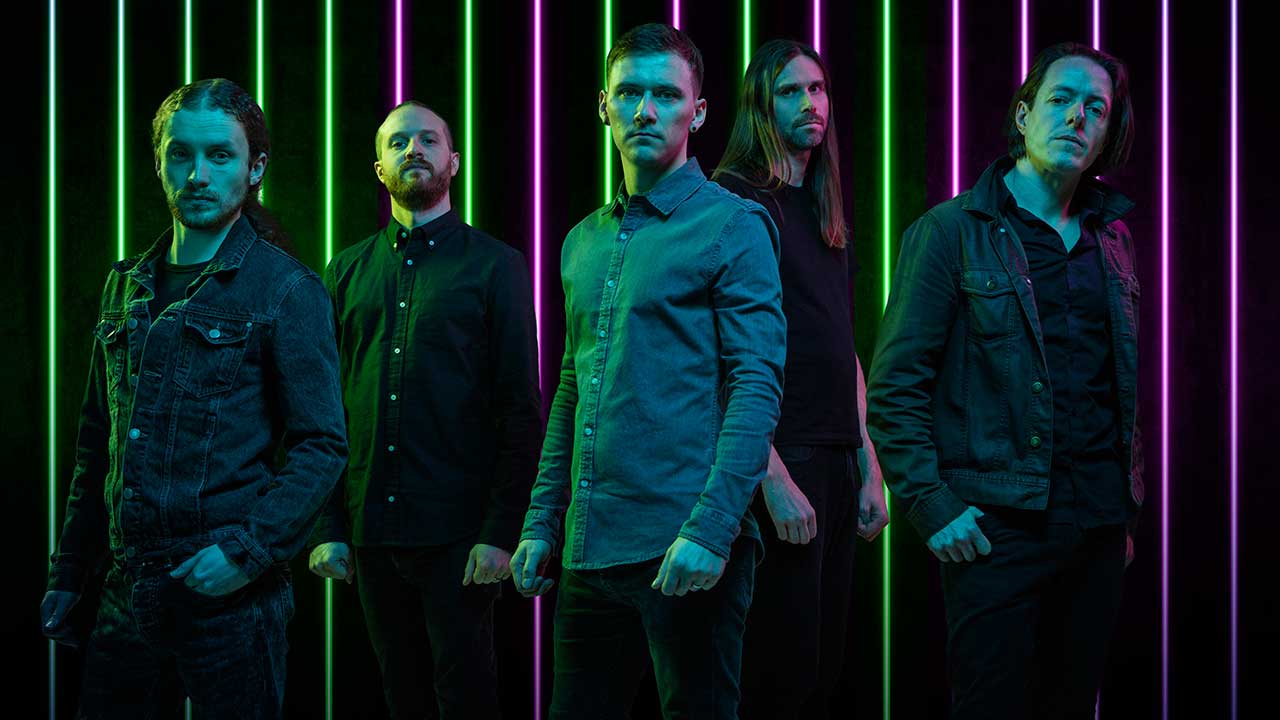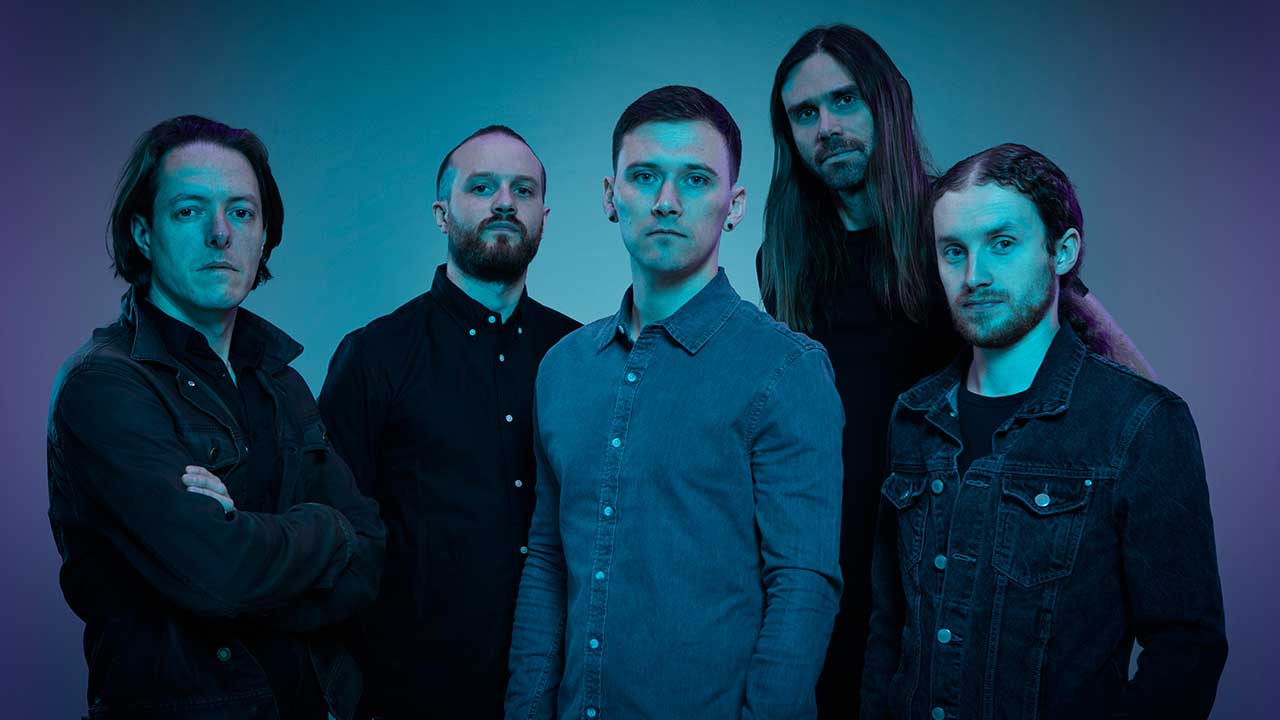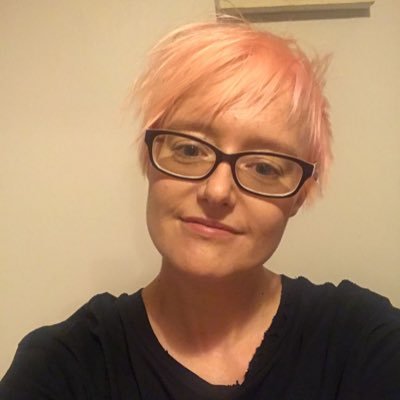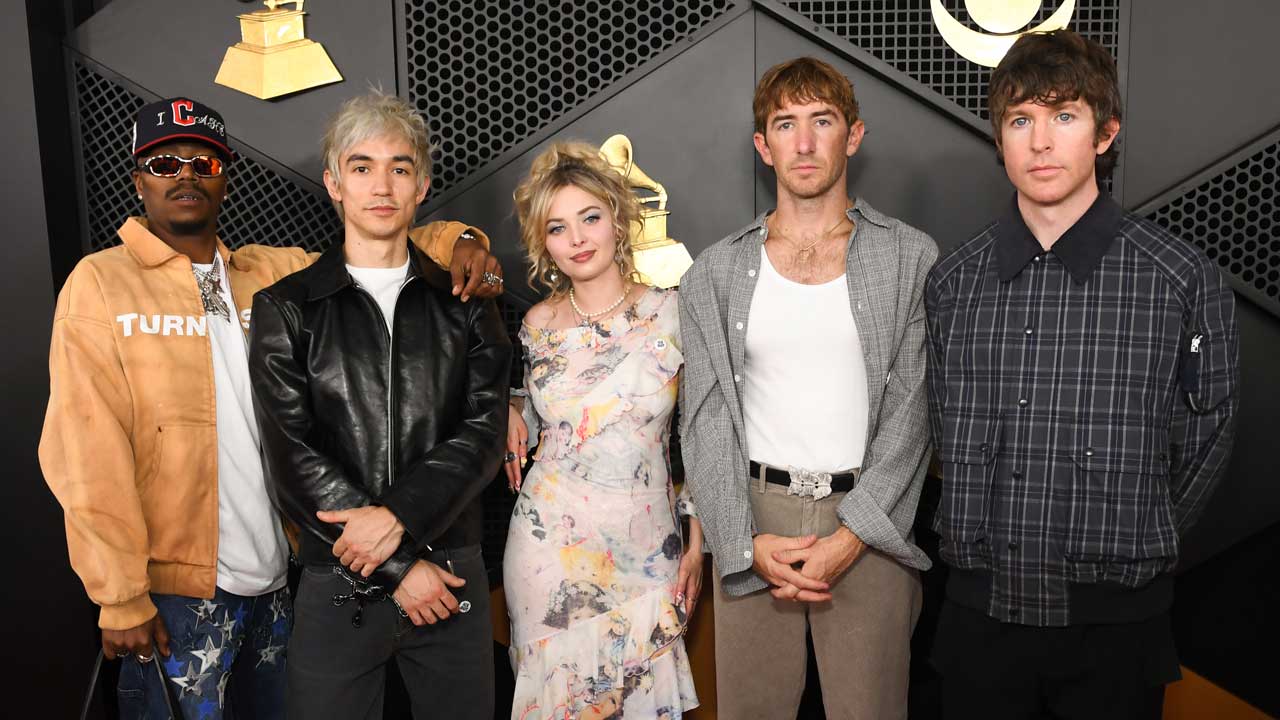Tesseract: "We’re never going to be a radio band"
What does the future hold for Tesseract? We sit down with guitarist James Monteith to find out

Tesseract's fourth album Sonder is a defining moment for the prog-metal pioneers, as it's the first time they've managed to keep the same vocalist for two records in a row. Original vocalist Daniel Tompkins returned to the fold four years ago to record landmark album Polaris, and has stuck around for arguably the band's riffiest album yet.
We caught up with guitarist James Monteith to talk about where the band are in 2018, their plans for conquering America, the idea of concept albums and why fridge doors sound super interesting.
Amos (Williams, bass) had moved back from China. What has it been like having everyone in the same country for once?
“To be honest it hasn’t made much difference. I know that sounds ridiculous, but we all work very remotely, we basically never see each other unless we’re going on tour. All of our communication is remote, most of the album was done remotely, Dan recorded vocals in his house and then everything else was tracked at Acle’s (Kahney, guitarist) house. He may as well be in China ha ha!"
What’s the vibe like in band?
“Fine, I think we’re all feeling positive. We’ve just announced our US headline tour and looks like tickets are shifting, and we’re announced to headline the Dogtooth stage at Download which is pretty awesome. We’re going up against Avenged Sevenfold which is quite funny. I don’t think they’ll be much crossover because I don’t think prog fans like Avenged Sevenfold.”
Is breaking America a big ambition for you guys? You toured with Megadeth which is massive.
Sign up below to get the latest from Metal Hammer, plus exclusive special offers, direct to your inbox!
“That was the biggest tour we’d ever done obviously, because apart from your stadium giants, that’s as big as you get. It was all arenas, big theatres and crowds in the thousands every night. But prior to that, I think that was the ninth time we’ve been there. We’ve really put in the groundwork in The States. I don’t know if it was ever our personal target or strategy, I think we were just very lucky because when we signed to Century Media we signed to the American arm of it, and then by the stars aligning we got on a tour opening for Devin Townsend back in 2010.
"Within a year we’d been to The States three times (with Protest The Hero and Between The Buried And Me) and it basically set us up to start going out there in our own right. It wasn’t a conscious decision and we didn’t even realise how lucky we were at the time because who gets the opportunity to go out with all of those bands? Very few people. And thanks to that we’ve established our own fanbase there, and it’s now our biggest market to go and headline.”
Was that the first time you played arenas?
“Yeah, I guess so. In terms of the actual gig, it was fine. To be honest, because we’re kind of veterans at this now, if you go out and play in front of 50 people or 5000 people it doesn’t make a massive difference in terms of how it feels. I think as long as people are enjoying it, that’s the key thing. I guess in a way it was kind of tough because we were second on, so sometimes it wasn’t massively busy, but you had to give it your all to try and win some of the crowd over. On the flipside, we only played for half an hour and were done by 8 o’clock so I could drink beer and watch Megadeth every night.”
Do you feel like your profile is increasing?
“I think with us it’s just been a real gradual process, we’ve never had any real dips or troughs. There’s never been a moment where the world has gone ‘Oh Tesseract are really great, we should all really like them!’ In fact, for the first five years of the band, nobody gave a fuck and it was just constantly battling away, and then we found key supporters who got behind us. But I think it’s worked to our advantage. Because there’s never been any boom period we’ve had very steady growth over the last 12 years, and in all honesty I’ve never thought about the profile growing because it’s been such a slow process. Compared to last year it doesn’t feel like there’s been much change, but there probably has been a slight incremental change as there is every year. I think announcing a new album is always a key moment – if it’s received well and people like it then hopefully we’ll continue that growth.”
The new album is called Sonder, which comes from John Koenig’s Dictionary Of Obscure Sorrows. What’s that about?
“I guess the way I interpret it is about having a much more empathetic mindset. As people, as beings, it’s very easy to be very insular and think that the whole world revolves around you.”
Do you think it’s getting a bit clichéd for tech bands to have concept records, or is it something that excites you?
“No, I think it depends on what the concept is. I think it’s quite nice the album has a story and a theme, and it all ties in rather than just a collection of songs. As long as it’s interesting. Polaris wasn’t, that was more of a collection of songs and this just happened to come together like that.”
How does Sonder sit within your catalogue?
“It’s the next one in the evolution. I think there are a few nods back to the early sound with some of the heavier riffs, but there are also a few nods to the second album, Altered State, in terms of the atmospherics. But I think it’s still its own thing that’s continued its evolution of the sound.”
Aiden’s (O'Brien, producer) big into field recordings, and you asked fans to send in audio samples that might make it onto the record. What made it onto the record, and why?
“It’s quite funny, he’s obsessed with field recordings, and we’ve been in dressing rooms before and he’ll tell everyone to shut up because he really likes the sound of the fridge door opening and everyone will have to be silent and he’ll sit there recording the fridge door opening and closing.
“I can’t remember how many field recordings we used, but it was something like 37 or 38. There were a lot of recordings. Lots of really random sounds. I think there were two babies heartbeats that we used, which is kind of cool, and various crowd samples.”

Will you ever break out of prog/metal circles and into the mainstream?
“I don’t know, that’s quite a tough question. It would be an interesting challenge but to be a radio band you need to have a particular formula, there are certain things that you need to do to have mass appeal, and I don’t think we would ever be that band. If we did fluke it then yeah, that would be amazing, but I don’t think we would ever want to compromise what we’re doing to try and get on the radio. In terms of wider metal appeal, that might be nice. Gojira are a good example of a band who have been going for years and have done the steady climb as well. I don’t think we’re going to break out of any scene in particular and suddenly take over a new realm, but as long as we keep producing decent records I’d like to think we can keep that slow climb. Maybe in ten years we’ll be a bigger band within our world? We’re never going to be a radio band.”
What’s next for Tesseract?
“We want to keep growing, play for as many people as possible, get to some new territories. We’ve not done a huge amount in Asia. We’ve been to India a few times and we’re off to India again next month. Metal is taking off in a lot of Asia – China, Malaysia, Japan – we’re not going to these places yet, but that’s my ambition for this album cycle. And to get to work on the next album as soon as, so it doesn’t take us another two years.”
Sonder is out April 20 and is available to order now from Amazon.
Danniii Leivers writes for Classic Rock, Metal Hammer, Prog, The Guardian, NME, Alternative Press, Rock Sound, The Line Of Best Fit and more. She loves the 90s, and is happy where the sea is bluest.

